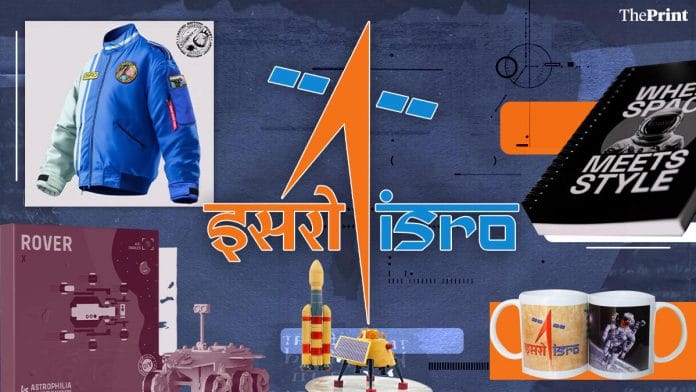Bengaluru: On 15 August, India’s Independence Day, Satchidanand Joshi walked into a small store in Pune and left with bags of t-shirts, magnets, and rocket models. These weren’t run-of-the-mill tchotchkes, but ISRO-approved memorabilia from artisan craft seller Indic Inspirations.
That was in 2021, the year India’s space organisation started collaborating with the private sector—a group of nine startups—to sell ISRO-themed merchandise, showcase its “achievements and laurels”, and “appeal to the younger generation”.
Today, there are over two dozen registered ISRO merchandisers in India, each with its own distinct take on the theme.
Ahmedabad’s Ankur Hobbies sells science-based toys and now has several with the ISRO logo, including DIY kits for telescopes, Mangalyaan, and PSLV models. Hyderabad’s Dhruva Space taps into spaceflight culture with RBF tags, mission patches, and calendars. Mumbai’s Black White Orange’s A47 brand focuses on trend-driven merch with astronaut jackets, Aditya L1 iron-on badges, enamel pins, and holographic stickers. Tirupur-based EENGN, also known as Tirupur Wear, sells ISRO tee shirts and hoodies. And Pune’s Indic Inspirations blends traditional craftsmanship with cosmic designs, from Channapatna-style wooden rockets and keychains to die-cast Chandrayaan-3 miniatures.
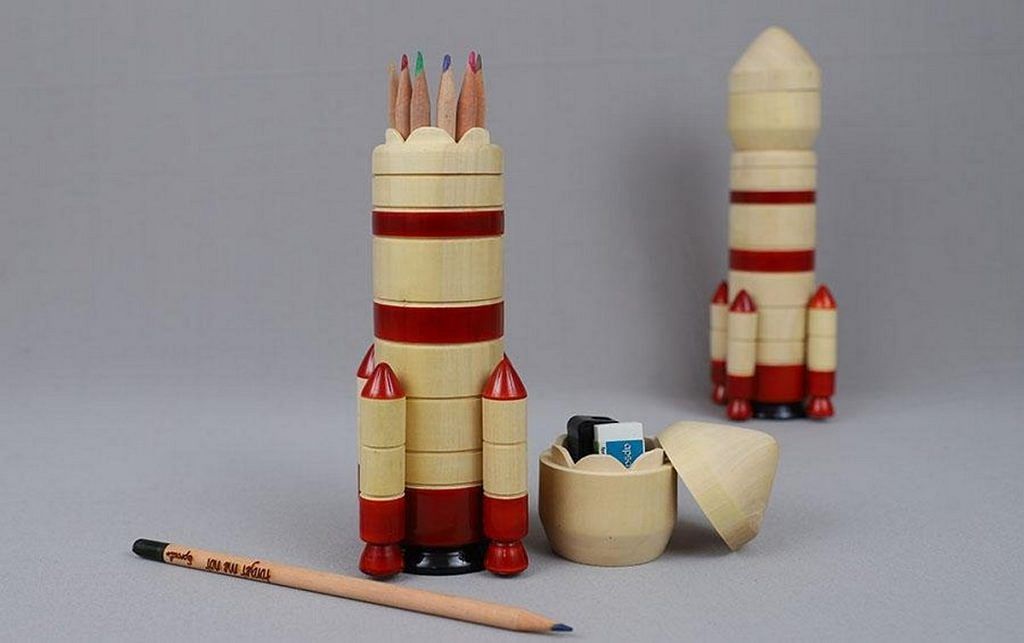
“We decided at around 2020 that, just like NASA does, we also want to start doing ISRO memorabilia and merchandise,” said an ISRO Capacity Building and Public Outreach (CPBO) official who works with merchandisers, speaking on condition of anonymity. “We put out a call for startups to tie up with us. We approve the accuracy of the designs, and sometimes even provide our own so that they can manufacture these products.”
Since that first visit to Pune’s Indic store, 51-year-old Joshi, head of Tech Mahindra’s Makers Lab for marketing and communications, has been a regular.
“I’ve picked up multiple T-shirts, magnets, and other things,” he said. “Two things struck me. One is the mainstreaming of space memorabilia in India. And then there’s the prestige of the ISRO logo itself. These products often feel like a piece of national space legacy, and I only see that feeling grow more and we see more merchandise around us.”
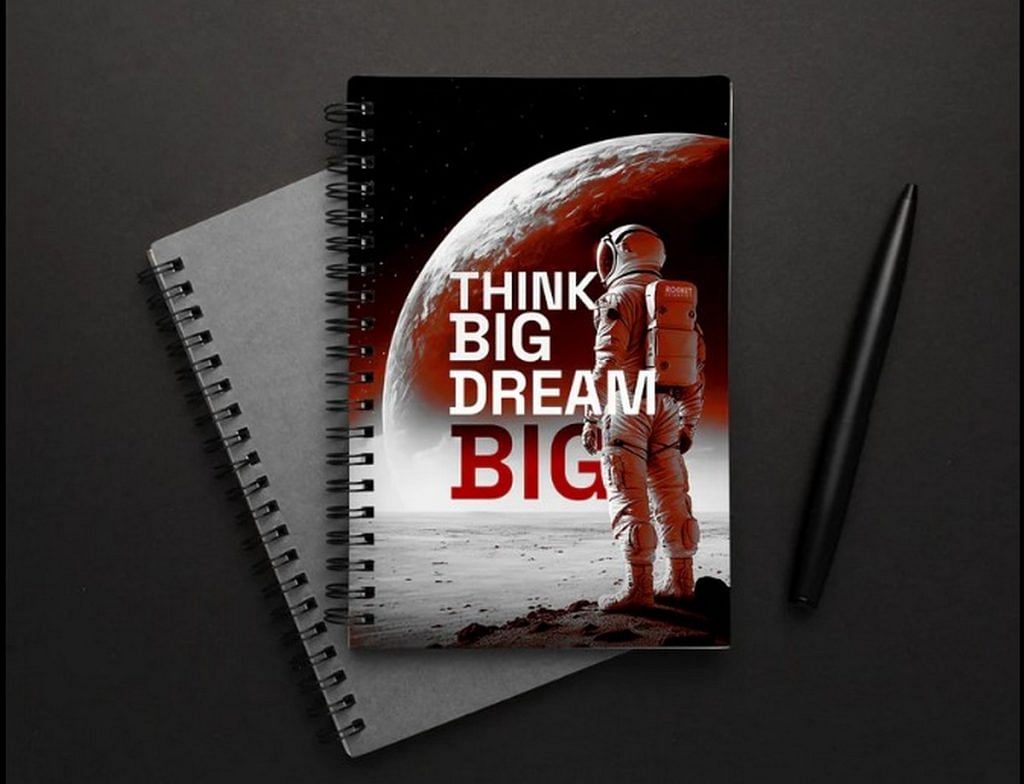
But ISRO is at least forty years late to the party. For decades, NASA’s iconic ‘meatball’ and ‘worm’ logos ruled space memorabilia—on T-shirts, mugs, and posters worldwide. For ISRO, merchandise wasn’t part of the mission plan until three years ago. But when it did come aboard, the timing was perfect.
Over the last few years, India’s interest in space has hit an all-time high, due to high-profile missions like Chandrayaan, Aditya-L1, Mangalyaan, and the upcoming Gaganyaan human spaceflight programme. And people want a piece of the action, even if it’s in the form of a decorative model or a faux spacesuit badge with the ISRO logo.
“A lot of our company’s followers are students and space enthusiasts, and generally proud Indians,” said Divya Kala Bhavani, spokesperson for Dhruva Space. “People are not just fascinated by this, but also want to be a part of ISRO’s space endeavours and wear these achievements.”
Also Read: Tissue engineering, satellites—science & tech startups to watch out for in 2025
Folk art meets final frontier
When ISRO launched its merchandise programme, Pune-based Indic Inspirations was already primed. It rolled out its space line Vyom— Sanskrit for ‘universe’— on the very same day.
Today, its range of ISRO merchandise includes handcrafted scale models of the PSLV, GSLV series, and LVM3 rockets, as well as Chandrayaan 3’s lander and rover, both wooden and diecast. The collection also features ISRO-themed DIY paper model kits, wooden and paper-based games, rocket-themed pencil boxes, astronaut figurines, coasters, fridge magnets, ‘India on the Moon’ tee shirts, caps, keychains, and more.
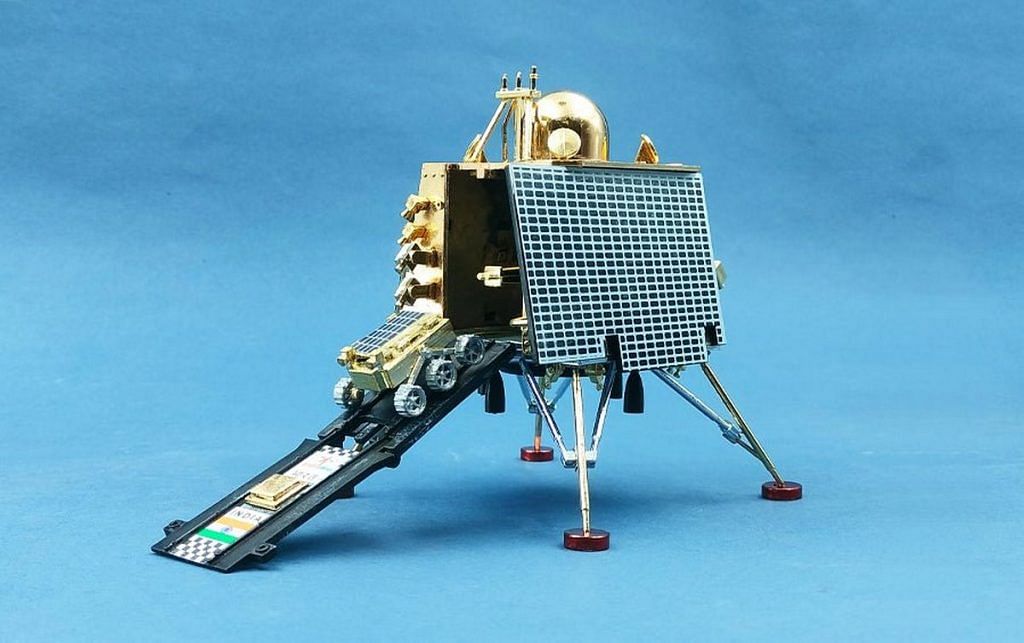
What sets Indic’s line apart from typical factory-made merchandise is its blend of folk art and space science. Its range includes items coloured with natural dyes like haldi and kumkum, handcrafted wooden pencil boxes, DIY cardboard and paper models, and detailed models sculpted from metal.
It’s space souvenirs for every pocket. At the higher end of the range are intricately crafted replicas of ISRO’s rocket engines, such as the Vikas engine (Rs 9,500) and the cryogenic engine (Rs 10,800). At the lower end, keychains shaped like rockets, rovers, and even the Vikram Lander are priced below Rs 200.
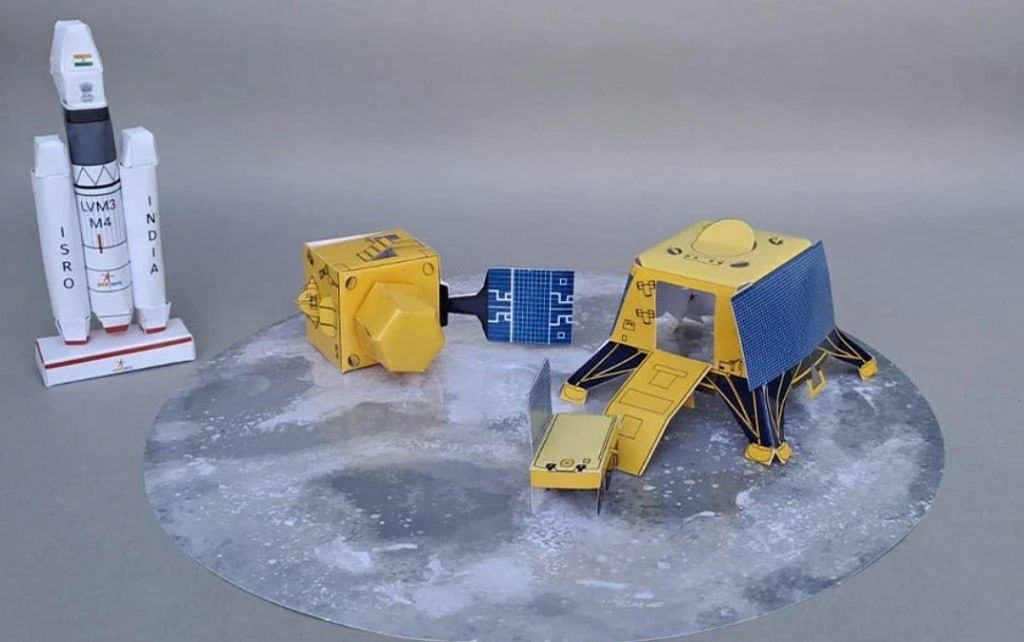
But the company’s story didn’t begin with rockets. It began with artisans and craft.
Back in 2014, its founders, couple Sunil and Padmaja Jalihal, started a trust called Heart for Art to support India’s traditional artisans. The trust ran online stores, set up workshops in major cities, and provided other promotional support to help artisans. But after a few years, they decided to go bigger.
“Somewhere towards the end of 2019, after having worked with over 300 artisans and establishing trust, we wanted to create new products and thus set up Indic Inspirations as a private limited company,” said Sunil Jalihal.
Initially, Indic’s catalogue included Madhubani and Patachitra paintings, miniature wooden musical instruments, and khadi Tirangas. The addition of ISRO memorabilia was a seamless next step in its endeavour to tell India’s stories through craft.
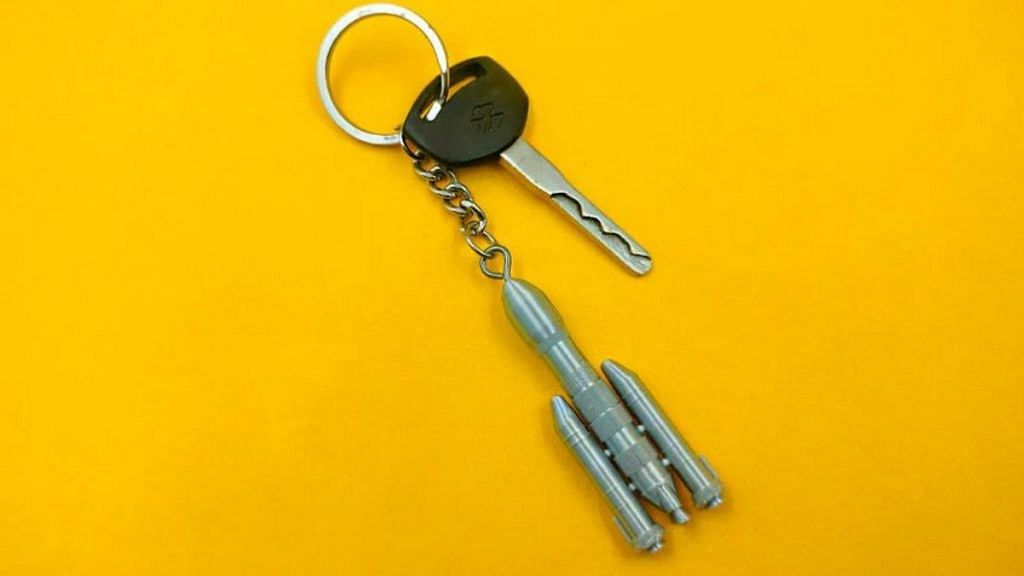
“We take any object, say a rocket, or like we did with our ‘Shunya’ collection, the number zero. We then build around it to try and explain what the story is, figuring out how to narrate it with our pieces, what kind of products would work well for the theme, and we decide to render the idea that way,” said Jalihal.
So, when ISRO announced its plan to license space-themed merchandise, Indic already had the blueprint. They tapped into their network of artisans and cottage industries, including Channapatna woodworkers, bronze sculptors from Tamil Nadu, papier-mâché artists from Kashmir, and stone sculptors from Mahabalipuram. These artisans, who had until then created toys, figurines, and sculptures, were now reimagining rockets, satellites, and space-themed collectibles.
One of Indic’s collaborators is Faircraft Creations, a Channapatna-based toy-making unit. They adapted their traditional toy making techniques to make items such as smooth, glossy wooden Chandrayaan landers and ISRO 4 Stage Rocket models.
“We make our Channapatna-style wooden toys using only natural dyes and avoiding chemical treatments,” said M Subbarao, founder and owner of Faircraft.
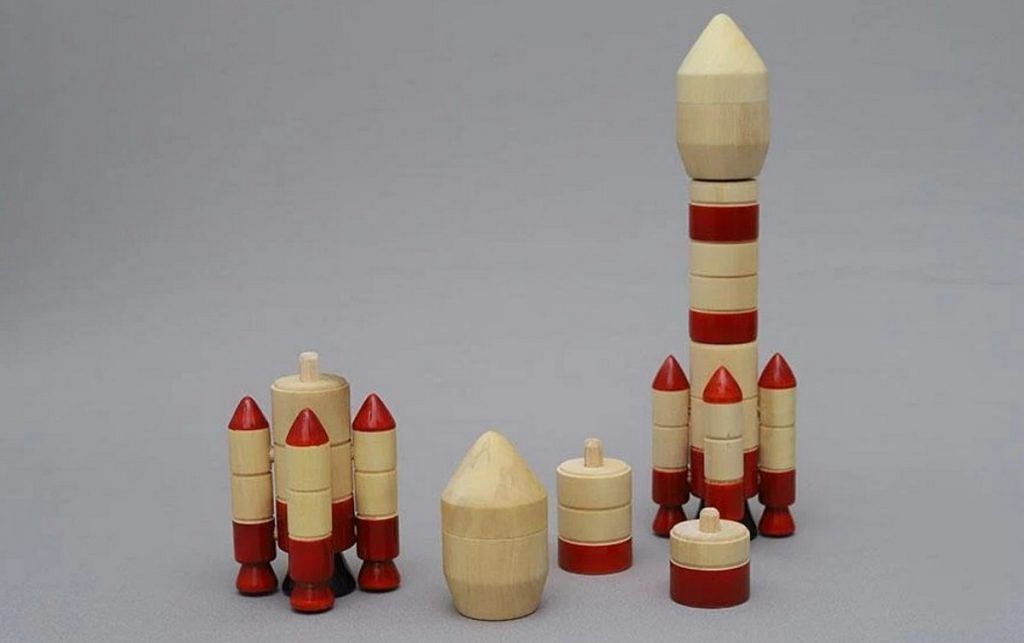
Scaling down, and up
Folk art was Indic’s USP, but scale models took it further. While NASA had long sold miniature spacecraft, ISRO had none. Jalihal said this gap bothered him and he decided to step in.
“We did some research on who’s making scale models in India and who’s buying them, and found out that these are typically given to retiring ISRO employees and are custom-made for them,” he said.
Sensing an opportunity, the company decided to use the process of die casting — pouring molten metal or other solidifying material into moulds — to produce scale models that would be accessible to a wider pool of buyers.
“We decided to take a part of ISRO, like rockets or satellites, and then created a bunch of objects around that, showcasing and narrating history,” Jalihal said.
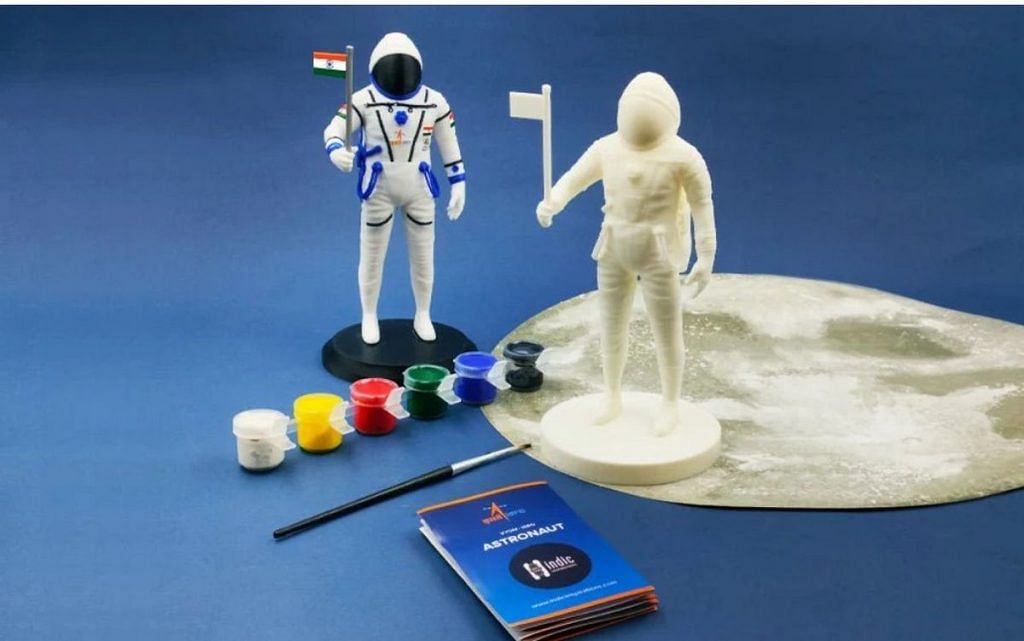
Indic, like the other merchandisers who make models, works with ISRO to finalise specifications and ensure accuracy, from the body of a rocket to the legs of a lander. For any product, a large group of creative designers, product and graphic designers, logistics teams, and others come together to map out the design, production, and supply strategy.
These efforts are paying off.
“The 1:200 scale models of the LVM3 and HRLVM do really well, and now the diecast model and fridge magnets of the Vikram lander and rover sell fast,” said Jalihal.
At the 2024 Bengaluru Space Expo, out of over 200 companies and space agencies with stalls, Indic was the only one allowed to sell products. In fact, they were invited to do so.
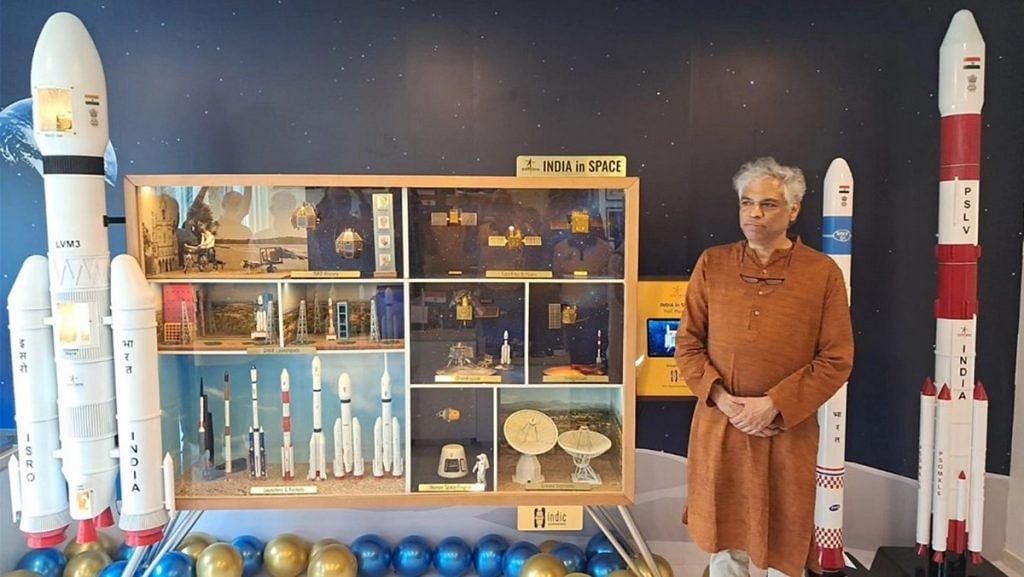
Back at its flagship Pune store, the experience is less about retail and more about interactive learning. Customers can see, touch, and learn about the products and how they were made. The collection also includes educational tools for children, including jigsaw puzzles, factoid books, and DIY building kits. One of Indic’s most elaborate projects is a ‘wall museum’ of India’s space journey— a Rs 7 lakh custom cabinet with brass and aluminium launchers, satellites, and even astronaut models.
Astrophotographer Bharath Moro, who purchased scale models at the Bengaluru Space Expo, was one of many people surprised by the quality of products on offer.
“These models are top notch with impeccable detail and great build quality. The fact that these are made in India blew my mind,” he said. “No longer do we need to depend on memorabilia from NASA to keep space interests alive.”
Now, Indic’s modeling work with ISRO has caught the attention of other major public institutions. Both Indian Railways and the National Defence Academy have approached the company to create custom memorabilialike scaled architecture models for them.
Space culture on the shelves
For Hyderabad-based Dhruva Space, merch is less about craft and more about spaceflight culture, from RBF (remove before flight) tags to mission patches to calendars of ISRO missions.
But Dhruva’s entry into merchandise wasn’t immediate. The company, which builds full-stack space engineering solutions, was one of the first nine startups to sign up with ISRO. However, it only began active production after its successful Thybolt satellite mission last year, when it became financially comfortable enough to begin merchandise production, said Divya Kala Bhavani, spokesperson for Dhruva.
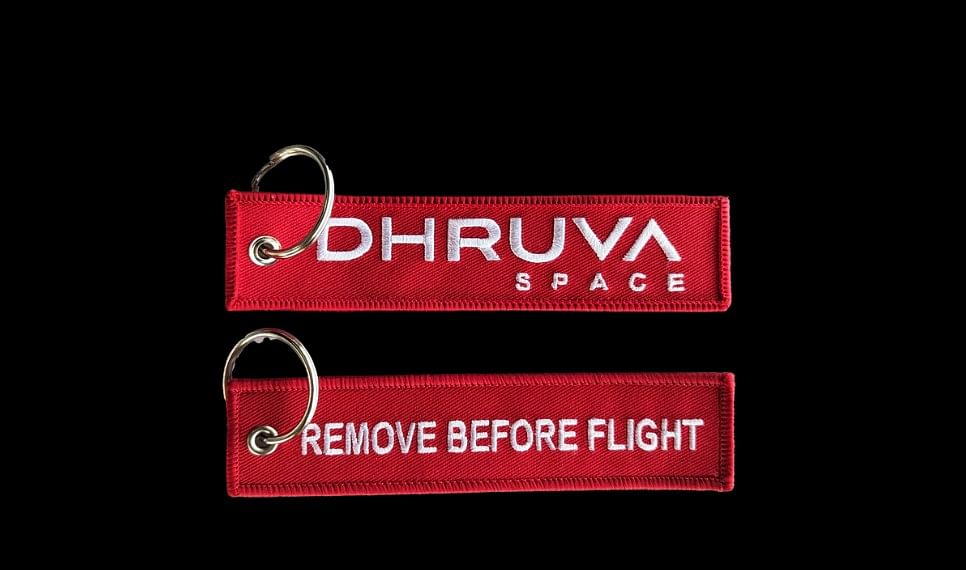
The company’s most popular product is its long, bright red keychains that look like strips of fabric. They are designed to look like RBF tags, which are used to label systems and must be removed before launch.
“With Thybolt, we released patches with intricate and well crafted, detailed work, and this was received really well,” said Bhavani. “So, we launched a small shop this February on [Canadian e-commerce platform] Shopify, where our products sell quite well.”
Dhruva has also launched calendars featuring Indian and ISRO personalities and achievements, as well as diaries.
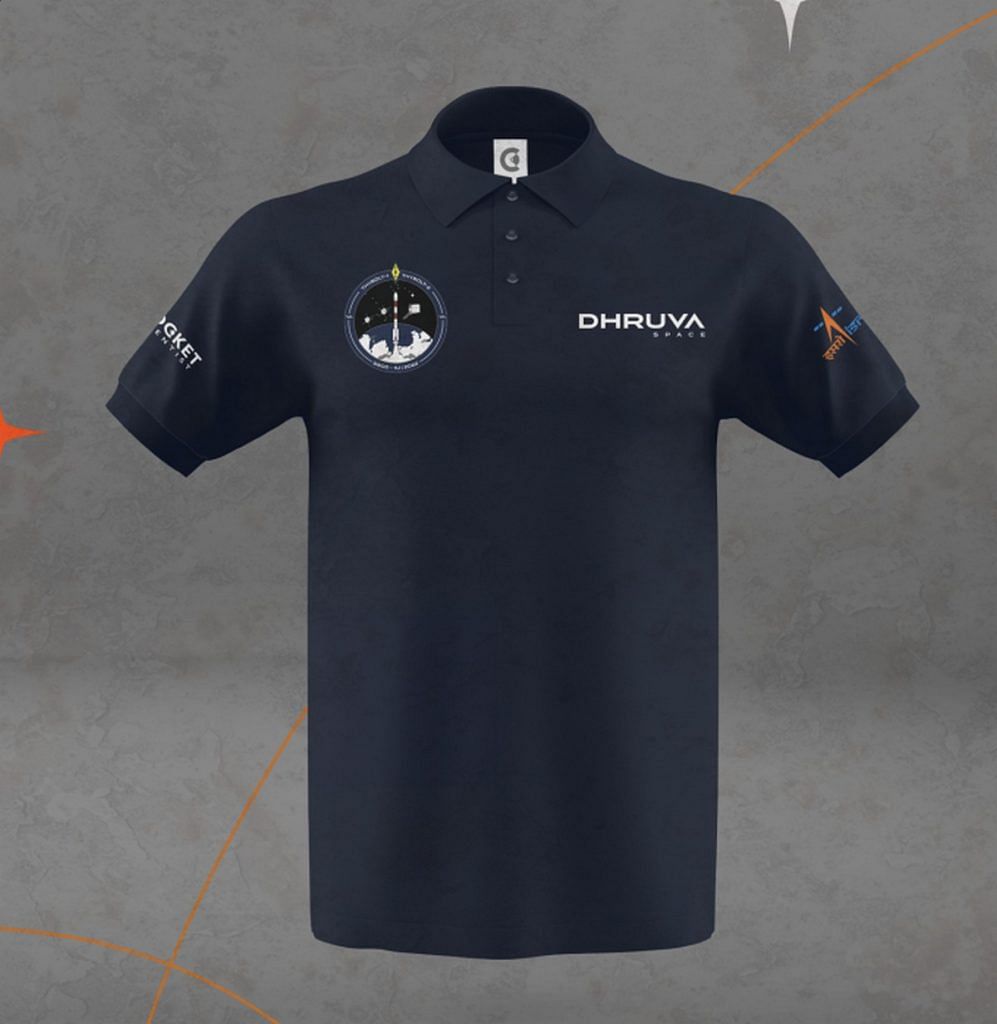
With growing interest, the team plans to expand their own online store, Rocket Scientist, in the first half of next year. The expanded range will feature their classic patches and RBF tags, along with apparel like tee shirts and jackets.
“We work in constant iterations with the CPBO on designs and the appropriate use of logos,” Bhavani said.
According to her, Dhruva’s work has attracted attention from larger space organisations and international agencies that have been impressed by the quality of its merchandise. The company is also exploring producing custom merchandise as a potential source of additional revenue.
Quotation mark “To (our customers), an item like a patch is not just a collectable, it is almost a documentation of India’s journey into the new space age,” said Bhavani.
Also Read: VIT’s Team Sammard wows NASA panels with rockets & satellites—no aerospace students involved
Gearing up for Gaganyaan
The next big leap for ISRO is Gaganyaan — the first human spaceflight from Indian soil. And ISRO’s merchandise partners are already marking the occasion with new memorabilia and fashion.
A47 has launched a limited-edition “Gaganyaan-1 astronaut jacket” priced at Rs 4,999, while Ankur Hobby Craft has a bright orange “Gaganyaan astronaut suit” for Rs 1,500.
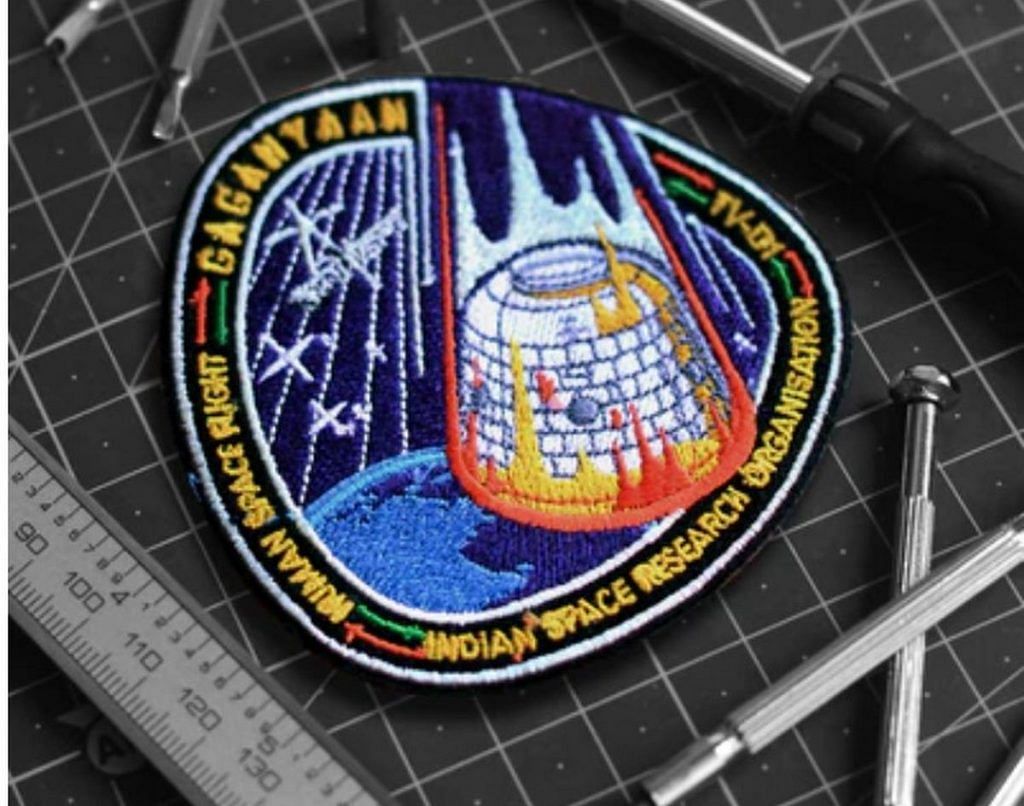
Indic Inspirations has a lineup that includes mission-specific designs approved by ISRO, such as scale models of the Gaganyaan crew module and rocket replicas. Prices range from a 1:200 scale model for under Rs 3,000 to a massive 1:10 outdoor model priced just shy of Rs 8 lakh.
“Symbols of inspiration and motivation are important to get kids and adults interested in something, whether technology or space,” said Jalihal. “ISRO is doing unbelievable things. It is important to grow and capitalise on that pride to create and inspire the next generation of engineers and space scientists.”
(Edited by Asavari Singh)



